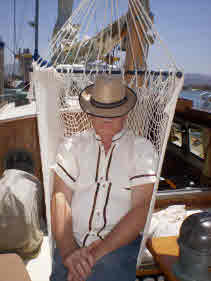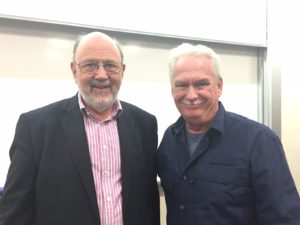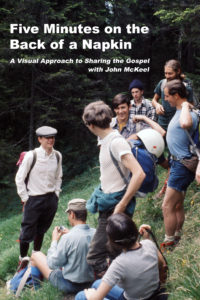“God’s Word refers to the Christian life often as a walk, seldom as a run, and never as a mad dash.” – Steven J. Cole
 Busy! If I was going to describe the San Diego lifestyle with just one word it would be busy. So much is happening and it seems like everyone is racing just to keep even with the incredibly busy pace of life and that often applies to church (Just look at the Church Calendar!), but once in a while something will happen that reminds us to slow down. This story from Tim Hansel’s book, When I Relax, I Feel Guilty, illustrates this point:
Busy! If I was going to describe the San Diego lifestyle with just one word it would be busy. So much is happening and it seems like everyone is racing just to keep even with the incredibly busy pace of life and that often applies to church (Just look at the Church Calendar!), but once in a while something will happen that reminds us to slow down. This story from Tim Hansel’s book, When I Relax, I Feel Guilty, illustrates this point:
Jimmy Durante was asked to be a part of a show for WWII veterans. He told them his schedule was very busy and he could afford only a few minutes, but if they wouldn’t mind his doing one short monologue and immediately leaving for his next appointment, he would come. Of course, the show’s director agreed happily.
But when Jimmy got on stage, something interesting happened. He went through the short monologue and then stayed. The applause grew louder and louder and he kept staying. Finally he took a last bow and left the stage. Backstage someone stopped him and said, “I thought you had to go after a few minutes. What happened?”
Jimmy answered, “I did have to go, but I can show you the reason I stayed. You can see for yourself if you’ll look down on the front row.” In the front row were two men, each of whom had lost an arm in the war. One had lost his right arm and the other had lost his left. Together, they were able to clap, and that’s exactly what they were doing, loudly and cheerfully.
Slow Me Down, Lord
Orin L. Crain
Slow me down, Lord.
Ease the pounding of my heart by the quieting of my mind.
Steady my hurried pace with a vision of the eternal reach of time.
Give me, amid the confusion of the day,
the calmness of the everlasting hills.
Break the tensions of my nerves and
muscles with the soothing music of the
singing streams that live in my memory.
Teach me the art of taking minute
vacations — of slowing down to look at a
flower, to chat with a friend, to pat a dog,
to smile at a child, to read a few lines
from a good book.
Slow me down, Lord, and inspire me to
send my roots down deep into the soil of life’s enduring
values, that I may grow toward my greater destiny.
Remind me each day that the race is not
always to the swift; that there is more to life
than increasing its speed.
Let me look upward to the towering oak
and know that it grew great and strong
because it grew slowly and well.



